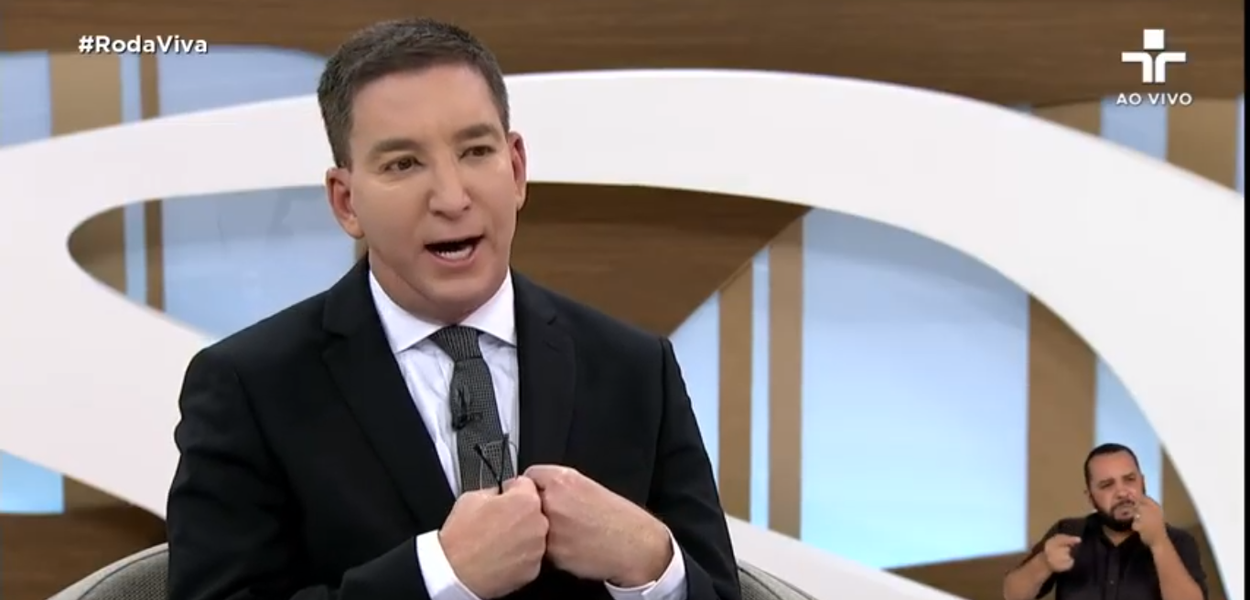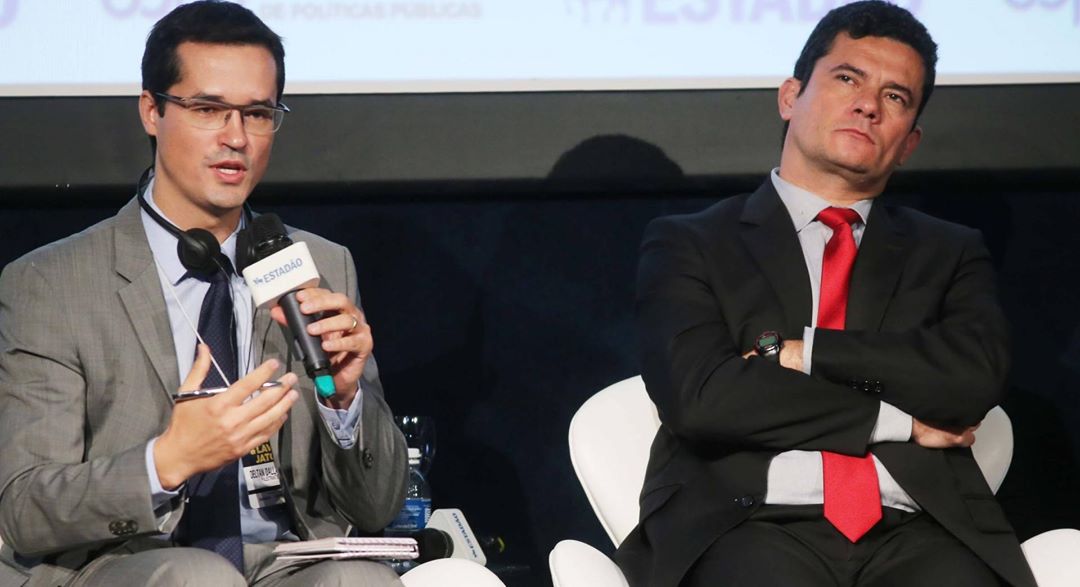RIO DE JANEIRO, BRAZIL – Journalist and lawyer Glenn Greenwald said today that the claims made by Justice and Public Safety Minister Sérgio Moro and the coordinator of the Lava Jato task force in Curitiba, Deltan Dallagnol, that they do not acknowledge the authenticity of the messages leaked by The Intercept website and that there could have been eventual tampering with the published content, are not sustained by the evidence.

“The authenticity of this file is no longer in doubt. This cynical game that Moro and Dallagnol were playing, in the beginning, is over. The question is how are we going to strengthen the fight against corruption. We know we have the Minister of Justice and the coordinator who were using entirely corrupt methods, not in isolated cases, but all the time,” he said as he was interviewed on TV Cultura’s “Roda Viva,” a live broadcast by UOL.
The journalist quoted as justification for his statement the case of prosecutor Jerusa Viecili, of the operation’s task force in Curitiba, who published an apology to former president Luiz Inácio Lula da Silva on her social media on August 27th, acknowledging the veracity of a message.
She was among those mentioned in a UOL report that showed that members of the Federal Prosecutor’s Office (MPF) had mocked the death of Lula’s wife, Marisa Leticia, in 2017, and the former president’s requests to go to funerals of relatives who died that year.
“I made a mistake. And my conscience leads me to do the right thing: to apologize to the person directly affected, former President Lula,” wrote the prosecutor on her Twitter.
Greenwald is a partner and co-founder of The Intercept, the website that launched on June 9th the series of reports based on the leaked conversations between Lava Jato prosecutors and Sérgio Moro, the former federal judge in charge of the task force trials.
“We are not undermining Lava Jato”
The journalist said he was a supporter of Lava Jato and the fight against corruption, which, according to him, is a “huge problem” in the country, but he changed his mind and began to see it differently after having had access to the leaked conversations.
“It is impossible to fight corruption with the corrupt, or corrupt methods. So I believe, without a doubt, that the journalistic work we are doing is not undermining Lava Jato, it is strengthening Lava Jato and the fight against corruption, because it is providing greater integrity and more credibility [to the operation]”.
When asked if Moro’s decision to accept becoming a minister in Jair Bolsonaro’s government may have undermined him and Lava Jato, Greenwald recalled that, according to the conversations between prosecutors already published by The Intercept, Deltan himself said that this decision could “destroy” such legacies.
The journalist was also asked if Moro could become a candidate to succeed Bolsonaro as President of the Republic. “If Jair Bolsonaro can win an election, anyone can,” he said.

“I would never pay for content”
The journalist further said that he had not paid for the content that has been published in The Intercept and that he would never pay. “We have never paid a penny to any source, including the source that passed this information on to us,” he said.
However, Greenwald said that the most important discussion regarding the source, or whether it was paid or not, is the content that has been disclosed. “I think the most important thing is the content, showing what the powerful have done, not who our source is. The public has a right to know what these powerful people have been doing in the shadows,” he said.
Greenwald said that journalists have not only the right but the obligation to publish content like what he and his team have been disclosing. “That’s a journalists’ job, not only here but all over the democratic world.”
Journalists or hackers
When asked if the police eventually found out that the hacker, the Intercept’s source, had been paid to obtain and disclose the messages, would the website interrupt the series of reports, Greenwald said no. “Absolutely not. The most significant and award-winning journalism often comes from a source who has committed a crime. It is not the journalists’ place to ask where the information comes from”.
“This has nothing to do with the fact that this information needs to be published,” he said. The journalist was then asked if this would not be the same as replacing journalists with hackers, to which Greenwald replied that “journalists have no right to break the law” and that, if this happens, they should be arrested. “Being a journalist does not mean having the right to take part in crimes”.
Final balance of the series of reports
On a potential cascading effect that could affect 143 defendants in Lava Jato, after the Federal Supreme Court (STF) overturned Moro’s conviction of former Banco do Brasil and Petrobras CEO Aldemir Bendine, Greenwald said he did not perceive this possibility as a liability or the end-result of the reports that have been published, “The same rule exists in all countries”.
If the state has committed illegal actions when convicting defendants, the decision is unjust. If corrupt people are released, it’s not our fault, because we are disclosing it, but that of the judges and prosecutors”.

